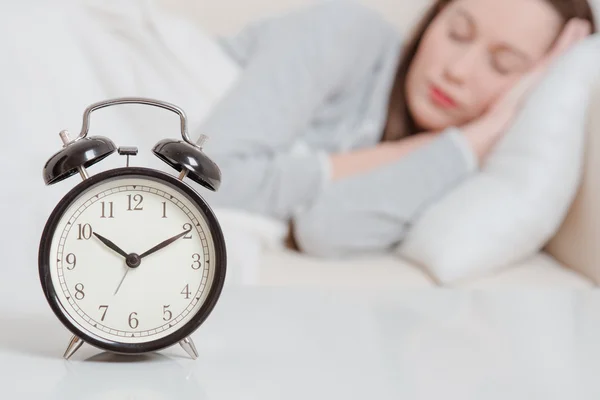A productive morning starts with a well-spent night made possible by Powerful Pre-Sleep Rituals. One benefit of pre-sleep rituals is that they can help to clear your mind before bed. A busy mind can make it difficult to fall asleep, but a pre-sleep ritual or nighttime routine helps you sleep and pave the way for a healthier and more refreshing morning. Here, Sound Health and Lasting Wealth will explore simple yet effective practices that can transform your mornings into moments of rejuvenation and vitality.
RELATED: Best bedding color for sleep: everything to know
1. Set a Bedtime and Stick to It

A good night’s sleep is essential for a healthy morning. One of the most important things you can do to ensure a restful sleep is to set a bedtime and stick to it. This may seem like a no-brainer, but many people don’t realize the importance of going to bed at the same time every night.
There are many benefits to setting a bedtime and sticking to it. First, it helps to regulate your body’s natural sleep cycle. When you go to bed at the same time each night, your body gets used to it and starts winding down in preparation for sleep. Second, it allows you to get enough sleep. Most people need around 7-8 hours of sleep per night, so if you go to bed at 10pm, you should wake up by 6am at the latest.
Third, sticking to bedtime can help reduce stress levels. If you’re constantly worrying about not getting enough sleep, it can lead to increased levels of stress and anxiety. But if you have a set bedtime that you stick to, you’ll know that you’re getting enough rest and can relax more easily. Setting a bedtime can help improve your overall health. Getting enough sleep is crucial for maintaining a healthy weight, reducing inflammation, and keeping your heart healthy.
2. Prioritize Personal Hygiene

Assuming you have already completed Step 1: Establish a Nighttime Routine, the next step is to prioritize personal hygiene before sleep. This means taking a shower or bath, brushing your teeth, and applying any necessary lotions or oils. It also means taking care of any personal hygiene needs that you may have, such as shaving your legs or using deodorant.
Taking care of your personal hygiene needs before bedtime will help you feel clean and refreshed when you wake up in the morning. It will also help you avoid any awkwardness or embarrassment that could come from having bad breath or body odor first thing in the morning. Also read | Best Color Light To Sleep With – Red, Blue, Green Or Yellow?
3. Wind Down with Relaxing Activities

There are a few key things you can do at night to help your body wind down and get ready for sleep. First, try to avoid any stimulating activities for at least an hour before bedtime. This means no more work, no more screen time, and no more intense exercise. Instead, focus on relaxing activities that will help you ease into sleep. Try reading a book, taking a bath, or stretching.
Second, create a comfortable environment in your bedroom that promotes relaxation. Make sure the temperature is cool, the sheets are clean and soft, and there is minimal noise and light pollution. You might also want to consider investing in a white noise machine or earplugs to help you block out any disruptive sounds.
Establish a regular sleep schedule as much as possible. Go to bed and wake up at the same time each day, even on weekends. This will help your body get into a rhythm and make it easier to fall asleep – and stay asleep – through the night.
4. Power Down Electronics Before Bedtime

It’s important to power down electronics before bedtime in order to get a good night’s sleep. Here are some tips for doing so:
-Avoid using electronic devices in the hour leading up to bedtime. This includes TVs, laptops, smartphones, and tablets. The bright light from screens can interfere with your body’s natural sleep rhythm and make it harder to fall asleep.
-If you must use an electronic device at night, try using dimmed or red light settings. These are less likely to disrupt your sleep than blue or white light.
-If possible, charge your devices in another room so you’re not tempted to use them in bed.
-Disconnect from electronics altogether by disconnecting from Wi-Fi and powering down completely before bedtime. This will help you relax and drift off to sleep more easily.
5. Practice Mindful Meditation or Visualization

Mindful meditation and visualization are powerful pre-sleep rituals that can help you relax and prepare for a good night’s sleep. There are many different ways to meditate, so find a method that works best for you. If you’re new to meditation, start with a simple breathing exercise. Sit in a comfortable position with your eyes closed and focus on your breath. Inhale slowly and deeply, then exhale slowly. Continue this breathing pattern for 10 minutes or longer.
If you’re looking for something more active, try a guided meditation or visualization exercise. There are many great resources available online or in app stores. Find a short meditation or visualization that you can do in 10-15 minutes before bed. Focus on relaxing your body and clearing your mind. Remember, the goal is to simply let go of any stress or worry so you can drift off to sleep easily.
RELATED: Meditation Diet: 7 Mindful Eating Habits To Enhance Your Practice
Conclusion
Building healthy and powerful pre-sleep rituals will ensure that you get the most out of every night and wake up with all the energy and focus needed to tackle the day ahead. Making time for yourself at night can be hard, but if you prioritize it, you’ll reap the rewards in no time. Whether it’s journaling your thoughts or taking a hot shower before bed, these five practices are sure to give you an extra edge when facing tomorrow morning. So what are you waiting for? Get started on crafting your own powerful pre-sleep rituals today!
FAQs
- Is it okay to drink water right before bed? It’s best to limit your fluid intake close to bedtime to avoid disruptions during sleep. Enjoy a small glass of water or herbal tea earlier in the evening to stay hydrated.
- How can mindfulness improve my sleep quality? Mindfulness techniques, such as meditation and deep breathing, can help calm your mind and reduce stress, making it easier to fall asleep and enjoy a deeper sleep cycle.
- What’s the ideal bedroom temperature for sleep? The optimal sleep temperature is typically between 60 to 67 degrees Fahrenheit (15.5 to 19.5 degrees Celsius). Adjust your room temperature to find what works best for you.
- Can I practice meditation lying down in bed? While it’s possible to meditate lying down, it’s recommended to sit up in a comfortable position to avoid falling asleep during your meditation practice.
- How long does it take to establish a bedtime routine? The time it takes to establish a bedtime routine can vary from person to person. It’s generally recommended to stick to your routine consistently for at least a few weeks to see its full effects on your sleep quality.









